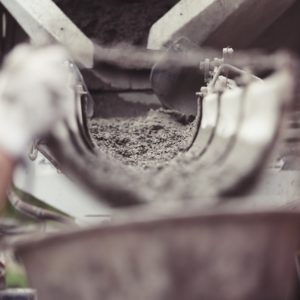-
Researchers find adding baking soda to cement can significantly decrease concrete carbon dioxide footprint
Date posted:
-
-
-
Post Author
Patrick LaveryCombustion Industry News Editor
-
-

Work by researchers at MIT and Harvard’s Wyss Institute has found that adding sodium bicarbonate (baking soda) into existing concrete manufacturing processes could maintain the product’s bulk mechanical properties while reducing its carbon footprint.
Around half of the emissions associated with cement production are through combustion of fuels to produce heat, and the other half is through the chemical transformation of calcium carbonate and clay to clinker and carbon dioxide. The researchers focussed on this latter component, particularly in the early formation of carbonates during concrete mixing with water, sand and gravel, and found in lab tests that mixing in sodium bicarbonate could reduce as much as 15% of the total CO2 production of cement as a whole (and therefore ~30% of the chemical transformation emissions). As a co-benefit, it could also reduce curing time, allowing for faster construction.
The product, according to civil engineering Professor Admir Masic, is “an entirely new material,” a mix of calcium carbonate and calcium silicon hydrate, which “can double the mechanical performance of the early-stage concrete,” though “it is currently unclear how the formation of these new phases will impact the long-term performance of concrete.” Carbonation of concrete normally occurs slowly, but can weaken the material and lower the internal alkalinity, which then accelerates the corrosion of the reinforcing rebar.
The researchers’ work hopes to avoid such outcomes while reducing emissions, and makes the prospect of very low carbon concrete being a step closer.
